
 Editor’s Note
Editor’s Note
The focus in this month’s Bulletin is on International Mother Earth Day, April 22
Table of Contents
SPECIAL SECTION
Earth Day 2023
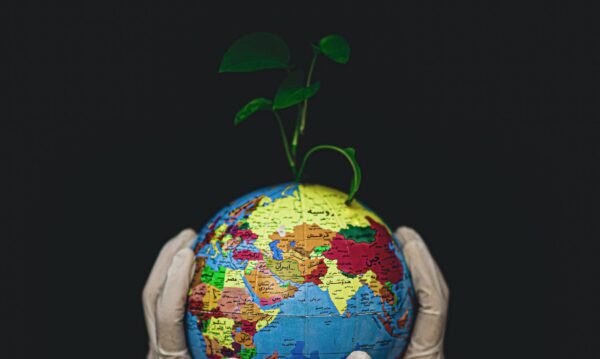
When Mother Earth sends us a message
Mother Earth is clearly urging a call to action. Nature is suffering. Oceans filling with plastic and turning more acidic. Extreme heat, wildfires and floods, have affected millions of people. Even these days, we are still facing COVID-19, a worldwide health pandemic linked to the health of our ecosystem.
Climate change, man-made changes to nature as well as crimes that disrupt biodiversity, such as deforestation, land-use change, intensified agriculture and livestock production or the growing illegal wildlife trade, can accelerate the speed of destruction of the planet.
This is the first Mother Earth Day celebrated within the UN Decade on Ecosystem Restoration. Ecosystems support all life on Earth. The healthier our ecosystems are, the healthier the planet – and its people. Restoring our damaged ecosystems will help to end poverty, combat climate change and prevent mass extinction. But we will only succeed if everyone plays a part.
For this International Mother Earth Day, let’s remind ourselves – more than ever – that we need a shift to a more sustainable economy that works for both people and the planet. Let’s promote harmony with nature and the Earth. Join the global movement to restore our world!
Making peace with nature. The report “Making Peace with Nature: A scientific blueprint to tackle the climate, biodiversity and pollution emergencies” translates the current state of scientific knowledge into crisp, clear and digestible facts-based messages that the world can relate to and follow up on. Get to know the current status of the world’s urgent issues and opportunities to solve them.
Archana Soreng: Our voice matters
Climate activist Archana Soreng belongs to the Kharia tribe in Odisha, India. Indigenous communities like hers make up only 5 percent of the world’s population. But they protect more than 20 percent of our planet’s land and 80 percent of its biodiversity.
“Over the years, generations of us indigenous communities have been told that we are underdeveloped, we are savage, we are backward because of our own traditions, because of identities, because of our cultures,” says Archana whose name means “rock” in her native language. “It is only now that over the years, we see that the rights of indigenous people, the perspective of indigenous people are being respected which is also incorporated in the IPCC reports,” she adds, referring to the science-backed report of the Intergovernmental Panel on Climate Change that for the first time in 2019 recognized the vital role indigenous communities play in preserving ecosystems and forests. Read Further here.
More than a century of burning fossil fuels as well as unequal and unsustainable energy and land use have led to global warming of 1.1°C above pre -industrial levels. This has resulted in more frequent and more intense extreme weather events that have caused increasingly dangerous impacts on nature and people in every region of the world. But there are multiple, feasible and effective options to reduce greenhouse gas emissions and adapt to human-caused climate change, and they are available now, said scientists in this IPCC report. Taking effective and equitable climate action will not only reduce losses and damages for nature and people, it will also provide wider benefits, the report points out, underscoring the urgency of taking more ambitious action now to secure a livable sustainable future for all.
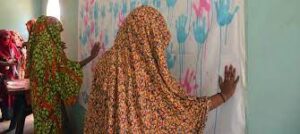
Read the Blog Climate Change – Trafficking and Human Rights Increases with Climate Changes
GNPHR NEWS AND EVENTS
GNPHR call for Nominations to the Steering Committee – deadline April 30, 2023
The Global Network of Psychologists for Human Rights (GNPHR) is seeking nominations of psychology colleagues who are “human rights champions” to serve on the GNPHR Steering Committee
The Global Network of Psychologists for Human Rights (GNPHR) is open to all psychologists around the world who are interested in Human Rights. It provides an independent platform to promote the application of psychological science to human rights issues.
The GNPHR provides a bridge between the global community of psychologists and international human rights initiatives. It reports on psychologists confronted with human rights violations, advocates for the improvement of human rights application, and for the support of victims of violations. It highlights human rights activities, scholarship and achievements of psychologists from all parts of the world.
Today, we are calling for nominations of “human rights champions” to commit and serve in the GNPHR steering committee. We especially welcome diversity in the location and interests of Steering Committee members. At this time we especially invite nominations from outside of North America/Europe.
Please complete THIS SURVEY with your contact information, a short bio with your area of interest and expertise if you wish to join hands in this endeavor.
We hope that our contribution will mark one step further towards the evolution of the human rights landscape, protecting and serving our humanity; “United we stand, divided we fall”.
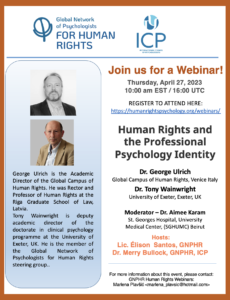 GNPHR Webinar Series – Human Rights and Psychology
GNPHR Webinar Series – Human Rights and Psychology
Next Webinar is April 27, 2023 – 10 am EST/4 pm CET
Topic: Human Rights and the Professional Psychology Identity
View all webinars in series here https://humanrightspsychology.org/webinarseries
REGISTER HERE for April Webinar
Upcoming Webinar: June, 2023 – Human Rights and Forced Migration
Psychology Organizations and Human Rights
The Network of Human Rights Groups in Psychology Associations is open to representatives of psychology associations that have established a committee, office, or subgroup focused on psychology and human rights. If you are interested in joining the group please register your interest here https://humanrightspsychology.org/home/about/interest-form-gnphr-working-group/
CONTENT AREAS AND NEWS
General
Identity and Shared Humanity: Reflections on Amartya Sen’s Memoir. Deen Chatterjee, March 2022, EIA Ethics and International Affairs, CUP.
The concept and implications of our shared humanity are central to the questions of where we belong, who we are, and how we relate to others. This idea features prominently in Amartya Sen’s work and it runs through his recent memoir Home in the World.
‘The importance of public reasoning in a pluralistic democracy has been a key component in Sen’s great contribution in the culture and human rights debate, as well as to the topic of justice. Sen has opened the way to bridging the divide between theoretical pronouncements and practical impediments by situating the arguments of justice in the real world of diversity, need, vulnerabilities, and interdependence.’
‘Because the notion of human rights is predicated on our shared humanity, Sen’s idea of justice is open to the world. It goes beyond national borders and regards people, rather than states, as sovereign.’
National Academies: We can’t define “race,” so stop using it in science. John Timmer, Ars Technica, 15 March 2023.
For genetics, use scientifically relevant descriptions, not outdated social ideas.
Genetics data has revealed that the popular understanding of race, developed during a time when white supremacy was widely accepted, simply doesn’t make any sense. In the popular view, for instance, “Black” represents a single, homogenous group. But genomic data makes clear that populations in Sub-Saharan Africa are the most genetically diverse on Earth.
The resulting report makes clear why racial thinking needs to go.
A summary of the mismatch between race and science offers welcome clarity on the problem: In humans, race is a socially constructed designation, a misleading and harmful surrogate for population genetic differences, and has a long history of being incorrectly identified as the major genetic reason for phenotypic differences between groups. Rather, human genetic variation is the result of many forces—historical, social, biological—and no single variable fully represents this complexity. The structure of genetic variation results from repeated human population mixing and movements across time, yet the misconception that human beings can be naturally divided into biologically distinguishable races has been extremely resilient and has become embedded in scientific research, medical practice and technologies, and formal education.
The results of racial thinking are problematic in a variety of ways. Historically, we’ve treated race as conveying some essential properties, and thinking of populations in terms of race tends to evoke that essentialist perspective—even though it’s clear that any population has a complicated mixture of genetic, social, and environmental exposures. Essentialist thinking also tends to undermine recognition of the important role played by those environmental and social factors in shaping the population.
World Report 2023. Human Rights Watch: Our annual review of human rights around the globe. Read whole report:
Editorial: A New Model for Global Leadership on Human Rights. Tirana Hassan, Executive Director HRW.
The obvious conclusion to draw from the litany of human rights crises in 2022—from Russian President Vladimir Putin’s deliberate attacks on civilians in Ukraine and Xi Jinping’s open-air prison for the Uyghurs in China to the Taliban’s putting millions of Afghans at risk of starvation —is that unchecked authoritarian power leaves behind a sea of human suffering. But 2022 also revealed a fundamental shift in power in the world that opens the way for all concerned governments to push back against these abuses by protecting and strengthening the global human rights system, especially when the actions of the major powers fall short or are problematic. We have witnessed world leaders cynically trading away human rights obligations and accountability for human rights abusers in exchange for seeming short-term political wins.
Libya: Urgent action needed to remedy deteriorating human rights situation, UN Fact-Finding Mission warns in final report . 27 March 2023, OHCHR.
GENEVA (27 March 2023) – The UN Independent Fact-Finding Mission on Libya expressed deep concern over the country’s deteriorating human rights situation in its final report today, concluding there are grounds to believe a wide array of war crimes and crimes against humanity have been committed by State security forces and armed militia groups. Read the report
The Language of Inequality: Evidence Economic Inequality Increases Wealth Category Salience. Mengran Xu, Richard E. Petty, August 2022, Personality and social psychology bulletin, Sage, (48,8).
There is evidence that in more economically unequal societies, social relations are more strained. We argue that this may reflect the tendency for wealth to become a more fitting lens for seeing the world, so that in economically more unequal circumstances, people more readily divide the world into “the haves” and “have nots.” Our argument is supported by archival and experimental evidence. Two archival analyses reveal that at times of greater inequality, books in the United Kingdom and the United States and news media in English-speaking countries were more likely to mention the rich and poor. Three experiments, two preregistered, provided evidence for the causal role of economic inequality in people’s use of wealth categories when describing life in a fictional society; effects were weaker when examining real economic contexts. Thus, one way in which inequality changes the world may be by changing how we see it.
Academic Freedom / Higher Education
Inter-American Principles on Academic Freedom and University Autonomy. Inter-American Commission on Human Rights.CIDH.org, 2021
Preamble. Reaffirming the need to ensure the respect for and full exercise of individual freedoms and fundamental rights of all persons in the hemisphere through the rule of law, as well as the importance of promoting debates and standards that strengthen the protection and guarantee of academic freedom in the Americas.
Children/Youth
It’s economics: The uncomfortable truth about transnational child sexual exploitation. Anneke Koning and Johan van Wilsem, 21 March 2023, Human Rights Here.
Why does transnational child sexual exploitation happen in certain countries and not in others? It is frequently assumed that corrupt governments, poverty, and insufficient protection of children’s rights are at the root of the problem. But new research shows that the relationship between these factors is different from what is expected.
Across the world, children have been and continue to be sexually exploited in violation of their human rights. Some of their abusers travel great distances, across country borders, to find them. While this transnational child sexual abuse is more popularly known as ‘child sex tourism’, we will here use the terminology ‘sexual exploitation of children in the context of travel and tourism’ (or SECTT in short) following international guidelines.
Finding diamonds in a coal mine. Kelley Swain, April 2023, THE LANCET, Child and Adolescent Health.
The very first time Grace Tame’s maths teacher singled her out for a chat in his office, and she told her mother about it after school, “my parents had a meeting with the school principal…requesting that this teacher stay away from me”. Her story is one now known around the world; one of grooming and manipulation, in which the then 15-year-old Grace was subjected to 6 months of almost daily sexual abuse, despite early warnings, and despite her parents being wary of the teacher from the start.
It is worth considering Tame’s story, not only for the violence she has endured, with great fortitude, but for the violence written into the political system, which did not allow victims to self-identify until 2019. The Ninth Life of a Diamond Miner: A memoir Grace Tame Macmillan Australia, 2022 pp 320, AU$49·99 ISBN 9781760988050
UNICEF: a model for disability-inclusive policy and strategy . Rosangela Berman-Bieler, Suzanne Petroni, Omar Abdi, Sanjay Wijesekera, April 2023, THE LANCET, Child and Adolescent Health (7,4).
. Rosangela Berman-Bieler, Suzanne Petroni, Omar Abdi, Sanjay Wijesekera, April 2023, THE LANCET, Child and Adolescent Health (7,4).
UNICEF’s core mandate is to ensure that every child, no matter their circumstance, is able to fully enjoy their human rights. Since its founding in 1946, UNICEF has worked to advance the rights and wellbeing of the most marginalised and excluded children, including children with disabilities. Although UNICEF’s work has helped children with disabilities to enjoy their rights, more needs to be done to attain a fully inclusive world and a fully inclusive UNICEF. To accelerate progress in meeting these aims, UNICEF is launching its first ever Disability Inclusion Policy and Strategy.
Child detainees in Iran subjected to flogging, electric shocks and sexual violence, says Amnesty,Hande Atay Alam, March 16, 2023, CNN.
Iranian authorities have used torture methods including sexual violence against imprisoned children as part of a crackdown on recent protests, according to rights group Amnesty International. “Iran’s intelligence and security forces have been committing horrific acts of torture, including beatings, flogging, electric shocks, rape and other sexual violence against child protesters as young as 12 to quell their involvement in nationwide protests,” Amnesty said Thursday. A report by the group exposed “the torture methods that the Revolutionary Guards, the paramilitary Basij, the Public Security Police, and other security and intelligence forces used against boys and girls in custody to punish and humiliate them and to extract forced ‘confessions.’”
Climate Justice
A Clear Message From Science. Somini Sengupta, March 20, 2023, NY Times
An international panel offers a warning about the dangers of fossil fuels, and also a blueprint to change course. “There is a rapidly closing window of opportunity to secure a livable and sustainable future for all (very high confidence).”
This is the most striking sentence in a 37-page summary, issued today, of the latest report by the Intergovernmental Panel on Climate Change. It tells us what’s possible. It tells us the stakes. The report has been compiled by hundreds of scholars and approved by the representatives of 195 countries. The italicized phrase represents the authors’ degree of certainty. The italics are theirs, not mine.
We are not all the same.
Among the world’s 8 billion people, 10 percent of households are responsible for 34 to 45 percent of greenhouse gas emissions. (We told you about the climate footprints of the richest 10 percent in an earlier newsletter.) “Vulnerable communities who have historically contributed least to current climate change are disproportionately affected,” the report said. (Read more in our series, published in 2020, called Inequity at the Boiling Point.)
The effects of racism, social exclusion, and discrimination on achieving universal safe water and sanitation in high-income countries. Joe Brown, Charisma Acey, Carmen Anthoni, Dani Barrington, Cara Beal, Drew Capone, et al., The Lancet, Volume 11, issue 4, April 2023.
Drinking water and sanitation services in high-income countries typically bring widespread health and other benefits to their populations. Yet gaps in this essential public health infrastructure persist, driven by structural inequalities, racism, poverty, housing instability, migration, climate change, insufficient continued investment, and poor planning.
Crimes against humanity
Samuel Green, the Abolitionist Who Was Convicted for Possessing a Copy of an Anti-slavery Novel. Uzonna Anele, March 26, 2023, Talk Africana
After the sale of his children, Green abandoned his futile attempts to buy back his children and instead turned his attention to finding ways to help them escape to freedom. Consequently, he became an enthusiastic participant in the Underground Railroad, a group of abolitionists dedicated to helping enslaved individuals flee to safety.
Green provided shelter for Harriet Tubman and people fleeing slavery. He was a suspected operator, but he was held in high esteem by the white community so he was able to operate freely for some time.
Green’s involvement in the escape of the Dover eight did not go unnoticed by authorities. He was suspected to have been involved in the incident, and Sheriff Robert Bell searched his house after his return from his trip to visit his son in Canada. Among other documents, Bell found a letter from Green’s son, Samuel, who lived in Canada, a map of Canada, railroad schedules, and the book “Uncle Tom’s Cabin” (1852) by Harriet Beecher Stowe. At the time, it was illegal to possess or distribute literature advocating for the abolition of slavery, and Green was arrested and charged with violating this law.
Unable to find direct evidence of Green’s involvement in the Underground Railroad, the prosecutor argued that “Uncle Tom’s Cabin” was intended to incite insurrection. As a result, Green was convicted of the felony charge of possessing “a certain abolition pamphlet called ‘Uncle Tom’s Cabin’… calculated to create discontent amongst the colored population.
Catalonia confronts past racism after slave trade documentary. Stephen Burgen, March 13 2023, The Guardian. The government of Catalonia has said the wealthy Spanish region must confront “the past racism” of its slave-trading history, after a documentary revealed how Catalan industrialists and seafarers profited from the transatlantic slave trade when the British abolished the practice in 1807.
It has long been acknowledged that many Catalan fortunes – including that of Antonio Gaudí’s patron Eusebi Güell – were made on the back of slave labour in the tobacco, sugar and cotton plantations of Cuba and, to a lesser extent, Puerto Rico. Far less well known is the fact that Catalan magnates and mariners spent decades growing rich from slavery after filling the void left by Britain’s decision to abolish slavery and exit the trade.
A hard-hitting documentary, Negrers: La Catalunya Esclavista (Slavers: Catalonia and the Slave Trade), which was shown on Catalan public television last month, aims to redress the balance. Watch the documentary here.
Guardian owner apologises for founders’ links to transatlantic slavery. Aamna Mohdin, 28 March 2023, The Guardian.
The owner of the Guardian has issued an apology for the role the newspaper’s founders had in transatlantic slavery and announced a decade-long programme of restorative justice. The Scott Trust said it expected to invest more than £10m (US$12.3m, A$18.4m), with millions dedicated specifically to descendant communities linked to the Guardian’s 19th-century founders. See also: David Olusoga, Slavery and the Guardian – the ties that bind us
Decolonization / Indigenization
Joint Statement of the Dicasteries for Culture and Education and for Promoting Integral Human Development on the “Doctrine of Discovery”. Holy See press office, 30 March 2023.
- In fidelity to the mandate received from Christ, the Catholic Church strives to promote universal fraternity and respect for the dignity of every human being.
- It is in this context of listening to indigenous peoples that the Church has heard the importance of addressing the concept referred to as the “doctrine of discovery.” The legal concept of “discovery” was debated by colonial powers from the sixteenth century onward and found particular expression in the nineteenth century jurisprudence of courts in several countries, according to which the discovery of lands by settlers granted an exclusive right to extinguish, either by purchase or conquest, the title to or possession of those lands by indigenous peoples. Certain scholars have argued that the basis of the aforementioned “doctrine” is to be found in several papal documents, such as the Bulls Dum Diversas(1452), Romanus Pontifex (1455) and Inter Caetera (1493).
- More recently, the Church’s solidarity with indigenous peoples has given rise to the Holy See’s strong support for the principles contained in the United Nations Declaration on the Rights of Indigenous Peoples. The implementation of those principles would improve the living conditions and help protect the rights of indigenous peoples as well as facilitate their development in a way that respects their identity, language and culture.
Vatican rejects doctrine that fueled centuries of colonialism. Nicole Winfield, March 30, 2023, APNEWS
On Thursday, these Indigenous leaders welcomed the statement as a first good step, even though it didn’t address the rescinding of the bulls themselves and continued to take distance from acknowledging actual Vatican culpability in abuses. The statement said the papal documents had been “manipulated” for political purposes by competing colonial powers “to justify immoral acts against Indigenous peoples that were carried out, at times, without opposition from ecclesial authorities.”
It said it was right to “recognize these errors,” acknowledge the terrible effects of colonial-era assimilation policies on Indigenous peoples and ask for their forgiveness.
The statement was a response to decades of Indigenous demands for the Vatican to formally rescind the papal bulls that provided the Portuguese and Spanish kingdoms the religious backing to expand their territories in Africa and the Americas for the sake of spreading Christianity.
Inclusion, Exclusion, Racism
Racism rebranded: how far-right ideology feeds off identity politics. Kenan Malik, January 8 2023, The Guardian.
In an extract from his new book, the Observer columnist describes how substituting ethnic superiority with ‘cultural difference’ has allowed traditional racism to seep back into the mainstream. How can we get out of the box of racial thinking?
We live in an age in which in most societies there is a moral abhorrence of racism, albeit that in most, bigotry and discrimination still disfigure the lives of many. We also live in an age saturated with identitarian thinking and obsessed with placing people into racial boxes. The more we despise racial thinking, the more we seem to cling to it.
This paradox is at the heart of my new book. ‘Not So Black and White’ is a retelling of the history both of the idea of race and of the struggles to confront racism and to transcend racial categorisation, a retelling that challenges many of the ways in which we think both of race and of antiracism.
Most people assume that racism emerges when members of one race begin discriminating against members of another. In fact, the opposite is the case: intellectuals and elites began dividing the world into distinct races to explain and justify the differential treatment of certain peoples. The ancestors of today’s African Americans were not enslaved because they were black. They were deemed to be racially distinct, as black people, to justify their enslavement.
‘A Huge Red Flag’: How Florida Colleges’ Controversial Statement on Diversity Came Together. Francie Diep, March 14, 2023, CHRONICLE.
As Ron DeSantis, Florida’s Republican governor, was taking fresh aim at diversity initiatives in higher education, the state’s college presidents put out an unusual statement.
Some diversity, equity, and inclusion initiatives “have come to mean and accomplish the very opposite and seek to push ideologies such as critical race theory and its related tenets,” said the statement, which was dated January 18 and stamped with the logos of the 28 state and community colleges that belong to the Florida College System. (These don’t include the four-.
The 28 Florida college presidents promised not to “fund or support” any practice “that compels belief in critical race theory or related concepts such as intersectionality.” They pledged to find and remove instruction, training, and policies, though it was difficult to parse what exactly they would get rid of. They said they’d excise anything “opposed to the forms of discrimination described in this statement.”
The Psychology of Racism, Arlin Cuncic, 2 February 2022, Verywell Health.
The psychological understanding of racism has historically been focused on individual psychology—how racism is driven by the beliefs and behaviors of individual people (the social-psychological approach). But there are severe limitations to viewing racism solely through this lens.
Today, some researchers are using and advocating for a cultural-psychological approach, which views racism as ideas and practices embedded in culture, where individuals shape culture and culture shapes individuals. We each have a personal responsibility to challenge racism on an individual level, but we also must look toward the cultural structures that perpetuate individual bias and the injustice that racism causes.
Researchers need to rethink and justify how and why race, ethnicity, and ancestry labels are used in genetics and genomics research, says new report. National Academies, March 14, 2023.
Researchers and scientists who utilize genetic and genomic data should rethink and justify how and why they use race, ethnicity, and ancestry labels in their work, says a new National Academies of Sciences, Engineering, and Medicine report. Read the report
The Manufactured Moral Panic Over Critical Race Theory. Kimberlé Crenshaw, March 2, 2023, Open Society Foundations.
Faculty being barred from testifying in lawsuits in Florida. Teachers being made to take loyalty oaths in New Hampshire. Monitors being placed in classrooms, and bounties being placed on teachers for exposing students to divisive subjects like the history of genocide and segregation. These are just some of the recent attacks on knowledge and on our very democracy unfolding in America today—attacks which have reached unimaginable heights. These are the consequences of the unfinished work of grappling with our nation’s racial history and our profound discomfort in talking about it. When we’re faced with the banning of more than one thousand books nationwide, including those by Nobel Prize winner Toni Morrison and civil rights pioneer Ruby Bridges, we can see that it is because of the unfinished business with our discomforting legacies.
LGBTQI+, Gender Rights
Open Letter to President Museveni from mothers of LGBTQ+ individuals. Tuesday, March 28, 2023, MONITOR.
It is our understanding that the Anti-gay rhetoric and messaging is targeted to demean and dehumanize our children, even as it is guised as a form of protection of children from ‘recruitment’ and a morality war. In the last few months, we, as parents of LGBTQ+ Ugandans, have watched in trepidation and deepening concern, as religious fundamentalists, publicly elected officials, and anti-gay lobbyists have organised a dangerous movement against our adult children.
As Parents of LGBTQ+ individuals, we are not ‘promoters’ of any agenda; we are Ugandan mothers, who have had to overcome many of our own biases to fully understand, accept, and love our children. We have always known that our children are “different”-from a young age and, in many ways, tried to turn them onto the path that we felt would be safer, a path of conformity to a norm that we now understand is not innate to LGBTQ+ children.
Mental Health and Human Rights
Mental Health Resources for Black, Indigenous, and People of Color. Mental Health America.
The way we talk about things can often influence the way we think about them. In the field of mental health, we are familiar with “person first” language. This is language that prioritizes the identity of individuals as human beings with unique experiences and identities over their mental health status. For example, we avoid describing people as “schizophrenics” and instead refer to them as “people with schizophrenia.”
This concept can be carried out as well in the way we refer to BIPOC (Black, Indigenous, and People of Color). he continued use of “minority or marginalized” sets up BIPOC communities in terms of their quantity instead of their quality and removes their personhood.
Robert van Voren: Transforming psychiatry in former Soviet States. Tony Kirby, April 2023, THE LANCET Psychiatry,
..[v]an Voren is a tireless advocate and campaigner for the transformation of the outdated and inhumane psychiatry practices of the states of the former Soviet Union. He is the director of the Human Rights in Mental Health-Federation Global Initiative on Psychiatry (FGIP), which campaigns against the political abuse of psychiatry in former Soviet states and other former communist countries in Europe. He is also professor of Soviet and post-Soviet studies at Vytautas Magnus University, Lithuania—the country he now calls home, which has seen some of the biggest transformations. “We will now have mobile community mental health teams in Lithuania, and the region’s first eating disorders centre—something unthinkable not so long ago,” van Voren tells The Lancet Psychiatry.
van Voren explains this old and ineffective system continues to operate in most former Soviet states, with few changes except the prohibition of sulphozine and insulin shock therapy. The exceptions are Lithuania, Latvia, and Estonia, all undergoing rapid transformation. Georgia has also made great strides in mental health care, and Ukraine, despite its current circumstances, has its first community mental health teams. van Voren explains changing old habits among older-generation psychiatrists and health-care workers can be hard, but the younger generations are embracing Western methods
Migration, Refugees, Displacement, Statelessness
Spain: over 16.000 young migrants obtain residence permits thanks to 2021 reform. 4 April 2023, PICUM.
In October 2021, the Spanish government passed a law to facilitate access to residence and work permits for unaccompanied children and young people who turn 18 and transition into adulthood. This blog collates official figures about its impact, and integrates comments from Jennifer Zuppiroli, Advocacy Officer at Save the Children Spain, one of the organisations that advocated for this reform.
The 2021 Spanish reform facilitates access to residence and work permits for all unaccompanied children, including those who arrived as children and were between 18 and 23 years old in October 2021 as well as those who age out in the future. In the words of the Spanish government, “the [2021] reform aimed to reduce administrative, social and work-related vulnerabilities by making it easier for unaccompanied children to reach adulthood with documents, by allowing them to access the labour market from the age of 16, as well as preventing them from almost automatically becoming undocumented when they turn 18, as was the case previously.”
According to official figures, 99% of all documented unaccompanied 16-and-17-year-olds were issued residence permits that explicitly permitted them to work. The employment rate of young people (16 to 23 years old) rose from 33% at the time of the reform to 54% only one year later. Most (former) unaccompanied children are employed in the hospitality, agriculture, livestock, and fishery industries, and in administrative work. The government has not seen an increase in the number of unaccompanied children arriving in Spain since the reform. In other words: enabling access to a secure residence status has not created a pull effect.
The reform was very much welcomed by Spanish civil society for several reasons. Firstly, it responds to various legal and practical gaps in the protection of unaccompanied children, including their access to a secure residence status or permit. Secondly, and crucially, the reform recognises the extreme vulnerability of unaccompanied children, and shifts the institutional narrative around this group, from “dangerous children” to “children finding themselves in a dangerous situation.”
PICUM, Human Rights-Based Approach to Universal Health Coverage inclusive of undocumented migrants
The Platform for International Cooperation on Undocumented Migrants (PICUM) was founded in 2001 as an initiative of grassroots organisations. Now representing a network of 164 organisations working with undocumented migrants in 31 countries, PICUM has built a comprehensive evidence base regarding the gap between international human rights law and the policies and practices existing at national level. With two decades of evidence, experience and expertise on undocumented migrants, PICUM promotes recognition of their fundamental rights, providing an essential link between local realities and the debates at policy level.
PICUM welcomes the Office of the United Nations High Commissioner for Human Rights (OHCHR) initiative to develop a policy brief that provides guidance on the implementation of Universal Health Coverage (UHC) that is consistent with legally binding human rights norms.
As any other human right, the right to health is universal and based on the principle of non-discrimination to treat every person equally – including undocumented migrants. In practice, many people are denied access to essential health services simply because they do not have regular migration status in the country they live in. Even in countries where health services are available as a matter of law, there are many administrative and other practical barriers that can prevent people who are undocumented from receiving the care they are entitled to.
PICUM’s submission provides examples from the European region on access to health care for undocumented migrants, as well as some lessons learnt from the COVID-19 vaccine rollout to undocumented migrants. PICUM concludes with recommendations on building accessible, effective, and resilient health system for all, regardless of migration status.
Violence and War / Peace
Ukraine
Playing the Victim. Testimony to the United Nations Security Council on Russian hate speech. Timothy Snyder, March 14, 2023.
The text of a briefing of The United Nations Security Council this morning, 14 March 2023, for a session called by the Russian Federation to discuss “russophobia”
Women
The Fight for Abortion Rights in Colombia. Ana Cristina González Vélez, March 8, 2023, Open Society Foundations.
Less than two decades ago, Colombia had a total ban on abortion without exceptions. Today, the country has some of the most progressive abortion laws in the world, after the nation’s Constitutional Court ruled last year that women could seek the procedure in the first 24 weeks of pregnancy—with exceptions in certain cases after that. The hard-won victory built on decades of brave campaigning and an extraordinary mobilization effort across the country. But the fight is far from over. The ruling fell short of complete decriminalization. Right-wing politicians, many tied to religious groups in Colombia, are already agitating for a referendum on reversing the law. Regional leaders have threatened to roll back rights. Abortion remains completely prohibited in El Salvador, Nicaragua, and Honduras.
PUBLICATIONS
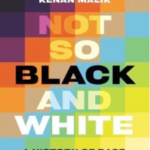 Not So Black and White. A History of Race from White Supremacy to Identity Politics. Kenan Malik, 2023, C Hurst & Co Publishers Ltd. https://guardianbookshop.com/not-so-black-and-white-9781787387768
Not So Black and White. A History of Race from White Supremacy to Identity Politics. Kenan Malik, 2023, C Hurst & Co Publishers Ltd. https://guardianbookshop.com/not-so-black-and-white-9781787387768
Special issue: Decolonising Psychology in Developing Societies. Psychology and Developing Societies,Volume 35 Issue 1, March 2023, Sage Journals. Guest Editor: Polli Hagenaars.
Contributions: Decolonising Psychology: Reflections on Continuing Myopia (Hagenaars); Working Through the Politics of Indigeneity: Decolonising Psychology by Way of a Dialectical Approach (Bharte and Mishra); Decolonising Reactions to Material Traces of the European Past: The Case of an Italian Colonial Food (Mastropietro, Migliorisi, Leone et al.); Epistemological Allyship (Oppong); Decolonising Mind and Being Associated with Marriage: Perspectives from Ghana (Baffour Adjei and Mpiani).
The Social Psychology of Tolerance. Maykel Verkuyten, November 2022, Routledge.
The importance of tolerance for a diverse, equal, and open society is increasingly recognized by social and behavioural scientists. When people are aware of salient differences and disagree about the value of various viewpoints and ways of life, the question of tolerance arises. Not only in relation to religious, cultural, ideological, and viewpoint differences but also concerning everyday things such as annoying habits of one’s partner, the views and behaviour of one’s children, disagreements at work, and neighbourhood hassles. Verkuyten uses concrete examples to discuss the various reasons for why tolerance is vital for peaceful communities, especially in our increasingly diverse and polarized world.
Humanizing Education for Immigrant and Refugee Youth. 20 Strategies for the Classroom and Beyond. Monisha Bajaj, Daniel Walsh, Lesley Bartlett, Gabriela Martínez, December 23, 2022, Teachers College Press.
OPPORTUNITIES
Events, Courses
April 26
Psychology in India: Reflections on Coloniality, Power, and Marginality by Dr. Sunil Bhatia on April 26th, 2023, 8:00pm to 9:30pm Eastern Standard Time (5:00pm to 6:30pm Pacific Standard Time) 5:30am Indian Standard time.
My talk will discuss how decolonial theories from native studies on settler colonialism, from Latin American diaspora scholars, and postcolonial theory provide a framework to challenge the hegemony of Eurocentric psychology. My talk will highlight that working towards the liberation of all in previously colonized societies, particularly the excluded and marginalized, requires engaging in dismantling the coloniality of knowledge, coloniality of being, and coloniality of power (Bhatia & Ram, 2022; Bhatia, Long, Pickren, Rutherford, in press, Maldonado-Torres, 2011).
Registration required. Online event limited to the first 500 registrants. Please register online at: https://ubc.zoom.us/webinar/register/WN_YXBweWOFR2SsX6TaHcWLuw
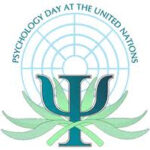 April 27
April 27
THE 16th ANNUAL PSYCHOLOGY DAY AT THE UNITED NATIONS, Thursday April 27, 2023.
Time: 11 AM to 2 PM Eastern Standard Time (EST), 15:00 to 19:00 Greenwich Mean Time (GMT/UTC). Psychological Contributions to Global Peace, Conflict Resolution and Equity. Organized by the Psychology Coalition of NGOs having consultative status with the UN ECOSOC.
Registration: https://us06web.zoom.us/webinar/register/WN_Wpxl1bk3T1aoqChCu3Cjhg
HREA offers an online course Introduction to Human Rights Education from 5 April – 16 May 2023. This course will be taught by HREA Director Felisa Tibbitts and will introduce the international field of human rights education (HRE), including presentations of programming approaches, pedagogical practices and teaching and learning resources. Participants will be exposed to ‘the basics’ of curriculum design and develop an applied product. Learn more about this and other HREA courses, and register
Awards
2023 UN Human Rights Prize open for nominations. Deadline April 15
Nominations are now open for the 2023 UN Human Rights Prize, which recognizes individuals and organisations for outstanding achievements in human rights. The award ceremony will take place at UN Headquarters in New York in December 2023.
“This year’s Prize comes at a special moment, as we commemorate the 75th anniversary of the Universal Declaration of Human Rights and reconnect to its values,” said UN Human Rights Chief Volker Türk. “Around the world, human rights defenders and activists have been the driving force for human dignity, equality and justice. They are more than tireless advocates of the Universal Declaration; they are its translators, from principle to reality, day-by-day striving to transform the world we live in into the one we hope for,” he added.
The Prize was established by the UN General Assembly in 1966 and is awarded every five years.
Nominations will be open until 23:59 (EDT) 15 April 2023/ 05:59 (CET) the following day. They can be submitted through https://bit.ly/HRPrize2023.
Human Rights Award: Deadline August 2023
International Council of Psychologists Human Rights Award
This award recognizes work being done by psychologists to advance human rights. The award is given to a psychologist or a group/organization largely composed of psychologists that has done substantial work to address human rights issues locally or globally through education, research, service or advocacy. Human rights are defined broadly and include social, cultural, economic, civil, and political rights. Deadline August, 2023.
Calls for Papers
Call for Papers on the Effects of Race, Racism, Social Justice, and Health Equity in Child and Adolescent Psychiatry. Proposal Deadline: June 1, 2023
JAACAP will publish a series of papers on the effects of race, racism, social justice, and health equity in child and adolescent psychiatry. These articles can cover the entire range of submissions within JAACAP including New Research, Reviews, Clinical Perspectives/ Translations, Commentaries, Attachments, and book reviews.
Proposals: Authors are invited to submit proposals for consideration in this special review series to the editorial office. A proposal should include: an abstract, initial outline, intended article type, and the full list of proposed authors so that early feedback and guidance can be provided prior to the development of a full manuscript. An invitation to submit does not guarantee acceptance of the manuscript. All papers should conform to the guidelines for reviews (see Guide for Authors) and will be subject to peer review. Please direct inquiries and proposals to support@jaacap.org.
CONTACTS: Published by the Global Network of Psychologists for Human Rights – www.humanrightspsychology.org
Disclaimer: The website of the Global Network of Psychologists for Human Rights (GNPHR) contains articles, events and news about the domain where psychology and human rights intersect. The information presented in this Bulletin, does not imply that the GNPHR shares the views and beliefs in the articles.
- @GNPHR1
- How to get involved – read how you can contribute to the global network
- Consider contributing a Blog/Commentary
- News and Bulletins from the GNPHR – Subscribe to GNPHR
- Email addresses:
Ways to Participate in Global Network Activities
- Student/young person representation on the GNPHR Steering Committee
Are you a student or young person (under 35 years of age) interested in joining the GNPHR Steering Committee? The GNPHR invites applications. Role description: The terms of reference broadly define the roles of all members of the steering group. Individual steering committee member tasks include : Each member will take responsibility for one of the following: (a) A specific content area or group of areas; (b) A specific project (e.g. survey of human rights reporting mechanisms; survey of educational programs in psychology/human rights, etc); (c) A specific function: for example, organizing a newsletter; soliciting commentary or newsletter blogs; seeking grant possibilities; outreach to general human rights organizations; outreach to psychology organizations or (d) Consultation: Working in collaboration with other organisations where there is a specific issue. In addition, from time-to-time, short-term subgroups may work on specific projects. In addition, for the student member, there would be a specific remit to liaise with other organisations that are focussed on younger people, psychology and human rights. Click here if you are interested in being nominated. - Share Your Experiences and Examples
One of the best ways to illustrate the intersection of psychology and human rights is through example. We are looking for examples of your encounters with human rights issues in your professional life. You might describe a time when you protected (or failed to protect) human rights, or advocated for what you saw as a human rights issue. The events might be in your clinical, research, academic, applied, or volunteer work. Please send your narrative / story (500-1000 words) to Marlena Plavšić (marlena_plavsic@hotmail.com). We will compile these for publication in the GNPHR Bulletin and on the website. Please also indicate if you would like your stories to remain anonymous. - Share your Expertise and Opinions
We invite you to contribute a blog or opinion piece on general human rights issues; human rights education or strategies for raising the profile of human rights within psychology or your professional life. Students are welcome to contribute, including on student needs for learning about and addressing human rights. Please contact the GNPHR Blog editor (blogeditor@humanrightspsychology.org) with ideas for the article you would like to write! - Send articles/news/events
If you come across a human rights article or news, or know of an upcoming hunman rights event, please send for publication in the Bulletin. Send to the Bulletin editor Polli Hagenaars (polli.hagenaars@gmail.com).

